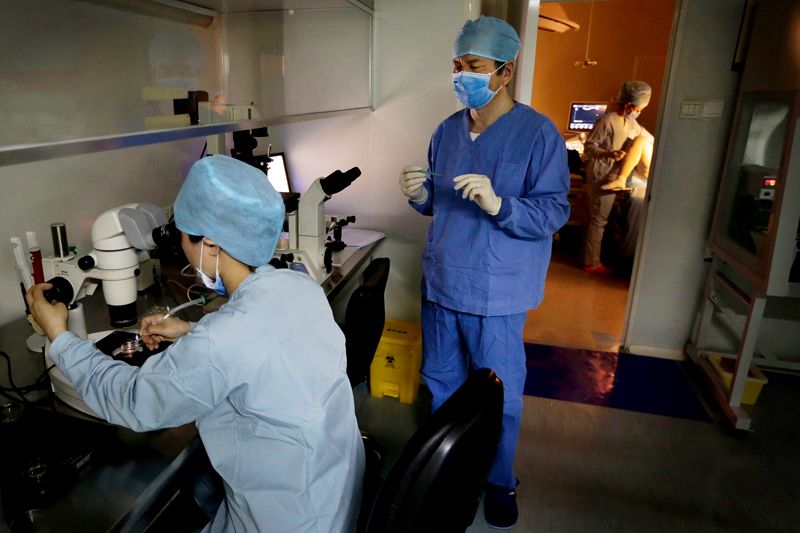As we walked off the aeroplane in Hong Kong in November last year, on the eve of the Second International Summit on Human Genome Editing, we had no idea that we were stepping into the epicentre of an unfolding human drama. Just hours earlier, He Jiankui had made his YouTube announcement claiming to have helped make genome-edited babies. As soon as we switched on our mobile phones, they started to vibrate furiously.
Two of us (R.Q. and X.Z.) worked until 4 o’clock the following morning, answering phone calls, helping China’s academic institutions and government agencies to respond to the event, and modifying our plenary presentations for the summit later that day.
In the months since, China’s scientists and regulators have been going through a period of soul-searching. We, our colleagues and our government agencies, such as the Ministry of Science and Technology and the National Health Commission, have reflected on what the incident says about the culture and regulation of research in China. We’ve also thought about what long-term strategies need to be put in place to strengthen the nation’s governance of science and ethics.
In our view, China is at a crossroads. The government must make substantial changes to protect others from the potential effects of reckless human experimentation. Measures range from closer monitoring of the nation’s hundreds of clinics offering in vitrofertilization (IVF), to incorporating bioethics into education at all levels.
Shocked and confused
Summit attendees were confused as they gathered in the auditorium of the University of Hong Kong on 27–28 November. Few had heard of He, a biophysicist then at the Southern University of Science and Technology in Shenzhen. Judging by the questions they were asking us, Chinese reporters were also unprepared and struggling to understand what was going on, or what was at stake.
In China, unlike in the United States and Europe, there have been few public debates about genome editing. Most people don’t know what it entails, or the difference between modifying germ cells (sperm or eggs) or other (somatic) cells, let alone the deeper issues — ethical, legal and societal — that are raised by genetically altering future generations.
He’s work violated international norms. And it contravened China’s 2003 Regulations on Human Assisted Reproduction, which prohibit the transfer of a genetically modified human embryo to a person’s uterus1. Moreover, He’s actions potentially put the health of the babies at risk — as well as that of their potential descendants — because of the likelihood of errors in genome editing. This goes against the traditional Chinese view of medicine established as far back as 600 bc. When the Chinese philosopher Confucius put forward the concept of ren (humaneness) as the core principle of Confucianism, many doctors followed his teachings, perceiving medicine to be the art of humaneness (yi ben ren shu).
Source: Reboot ethics governance in China


